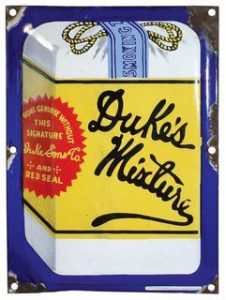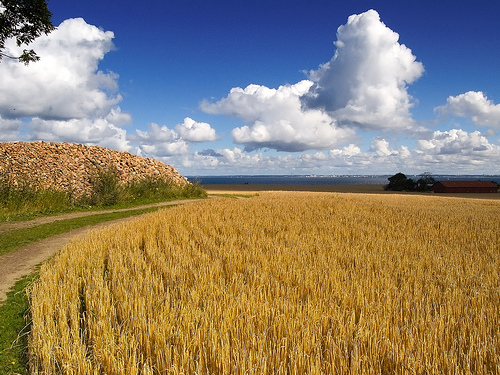Revised Common Lectionary reflection for the Seventh Sunday after Pentecost, Year A
July 23, 2017
Lessons: Isaiah 44:6-8, Alternate: Genesis 20:10-19a, Psalm 86:11-17, Romans 8:12-25, Matthew 13:24-30, 36-43
Theme: God’s faithful and generous people realize that stewardship does not equal perfection. We are flawed yet beloved people, and at our best we extend that same grace to one another and to all God’s creation.
Key Scripture: The Son of Man will send his angels, and they will collect out of his kingdom all causes of sin and all evildoers, and they will throw them into the furnace of fire, where there will be weeping and gnashing of teeth. Then the righteous will shine like the sun in the kingdom of their Father. Let anyone with ears listen! Matthew 13:41-43
Preaching/Teaching Reflection
This week’s gospel parable makes me uncomfortable; in fact, it flat out challenges any pat notions or assumptions about Jesus and discipleship and about insiders and outsiders that might be lurking in the cushy-comfy corners of my mind. The more I study and preach on this text, the less I do so with certainty and the more I do so with humility–and hope.
 The first question most folks want answered when they encounter this parable is “Who are the weeds?” Of course, the question behind the question is more pointed: “Am I a weed?” or “Is that person I don’t like a weed?” or even “Who’s going to get toasted on Judgment Day?” Nobody wants to weep and gnash when shining like the sun is the other option.
The first question most folks want answered when they encounter this parable is “Who are the weeds?” Of course, the question behind the question is more pointed: “Am I a weed?” or “Is that person I don’t like a weed?” or even “Who’s going to get toasted on Judgment Day?” Nobody wants to weep and gnash when shining like the sun is the other option.
At first glance this parable seems pretty concrete and accessible–the duality of good and evil is presented with evil getting burned to a crisp in the end. Jesus even explains the parable to his disciples. So why all the squirming? If one is a child of God, a disciple of Christ in good standing, who’s to worry, right? Would that it were so simple!
Unfortunately the world and even scripture cannot be painted in orderly lines of black and white. As my daddy is fond of saying, “It’s a Duke’s Mixture.” Yes, this world and all that’s in it may indeed be aptly identified with this Southern colloquialism. (If the term is foreign to you, click here for an explanation.)
Everything is all lumped together in a way that makes the sorting out pretty much impossible at this point, just like sorting the darnel (tares/weeds) from the wheat was impossible until the harvest. Think about it. Some things that appear good can be downright nasty or even poisonous. Other things that appear less than palatable are quite good. We humans, each and every one of us, are a mixed bag of good and bad or saint and sinner. I dare say not a one of our congregations is perfect either. Let the congregation without any conflict cast the first passive-aggressive stone, and then we’ll talk about it.
How, then, does this parable speak to us today in 21st century America? A lot of folks couldn’t look at a field and tell the difference between wheat and darnel, much less between wheat, hay, or alfalfa. It seems that trying to self-identify with wheat or weed is probably not that productive, and pointing the finger at other folks is most certainly not helpful and surely not the point Jesus was trying to make.
 I think we need to remind one another that God created this world and all that’s in it, proclaiming it good. Sin entered the world, sowing pain and suffering in its wake and fracturing the perfect goodness of the created order. God came into the messy midst of us in human form to bridge that fracture and begin the process of redeeming all creation. We, saint and sinner, Duke’s Mixture disciples, are involved in that restoration. Getting sidetracked and scrambled keeps us from our job of growing and healing, but because of our brokenness and hard-headedness that’s exactly what we tend to do when left to our own devices.
I think we need to remind one another that God created this world and all that’s in it, proclaiming it good. Sin entered the world, sowing pain and suffering in its wake and fracturing the perfect goodness of the created order. God came into the messy midst of us in human form to bridge that fracture and begin the process of redeeming all creation. We, saint and sinner, Duke’s Mixture disciples, are involved in that restoration. Getting sidetracked and scrambled keeps us from our job of growing and healing, but because of our brokenness and hard-headedness that’s exactly what we tend to do when left to our own devices.
No garden, whether tended by a Master Gardener or Certified Brown Thumb, is going to be completely weed-free. The key is to pluck out the big stuff and avoid going after every little thing at the expense of growth and health. There is a harvest coming, and we as disciples should be active and ready participants. It’s hard to shine like the sun when you’re face down in the dirt plucking at weeds with a pair of eyebrow tweezers.
My prayer for all of us this week is three-fold. May we all live in the moment, celebrating our crazy-quilt, inside-out, Duke’s Mixture reality. May we forgive and love ourselves and others as Jesus does, and may we share prodigally the amazing Good News of which we are stewards. Blessings on your preaching and teaching!
In Worship
The musical duo Lost and Found has a wonderful song, “BLSQD” (listen to the song here) that would make a good meditation on the duality of good and evil. Consider having your youth or media team find images to accompany the music (with proper attribution to Lost and Found, of course).
With Youth
How does one discern between what’s good and what’s not? Sometimes the task is an easy one, but other times it can be downright difficult. Find several examples of things that look good but are actually bad for a person and things that look bad but are quite good. A few possibilities might include cosmetics or beauty products that contain harmful carcinogens (visit the Campaign for Safe Cosmetics for ideas) or a loaf of bread (yes, bread is good for you, but very few brands do not contain High Fructose Corn Syrup). Cultivate some mold and talk about how gross it looks, but how helpful it is in penicillin or how tasty it is in certain cheeses. The possibilities are many, and you might even consider asking your youth to help come up with examples. Make the link to this parable and then talk about how to survive in a world where good and evil co-exist. How can we be agents for good?
With Children
Take two balls of green yarn (slightly different shades). Have the children stand in a circle, and while someone holds the end, toss the balls back and forth until the yarn is all mixed up. (Note: This would also work well during a children’s sermon in the sanctuary, although you may need more yarn.) Ask the children how difficult it would be to separate the two colors. If you use scissors, then the yarn can no longer be rolled into a ball. Link this activity to the parable of the wheat and weeds by showing children pictures of a wheat field and a field of darnel (google images has some good options). Talk to them about how sometimes it’s hard to tell when something is good or bad and sometimes good things and bad things get all tangled up. The good news is that we don’t have to worry about sorting out the mess. As Christians we just work on growing as strong in faith as we can and on sharing the good news. God will take care of the tangles.
Weekly Stewardship Bulletin Insert
Part of good stewardship is making sure you don’t spoil everything to get rid of something—whether it’s gardening or cooking or the life of faith. Let us be gentle and forgiving with one another, recognizing that we are “discipleship works in progress” and that God does mighty fine work through flawed yet beloved people.
Stewardship at Home
Why not bake a cake or a batch of homemade brownies this week to share with someone who could use a little encouragement? As you gather the ingredients and prepare to make your culinary delight, contemplate how it takes a variety of ingredients to make the final product—most of which would not taste nearly as nice if eaten alone. And once your recipe is baked, it’s impossible to tell where one ingredient begins and another ends.
Want to carry the metaphor even further? Make a batch of black bean brownies. Most people don’t put beans in their brownies any more than they’d be likely to sow weeds in their flower bed. But this is one example where a seemingly incongruous and unexpected ingredient makes the brownies all the better. We never know what God is up to in the divine discipleship recipe. Regardless of what “ingredient” you bring to the table, you’re better off combining your gifts and talents with those of others in Christ’s body. Now don’t forget the stewardship part of this illustration, and go share your culinary art with others as you give thanks to God for the variety of gifts and talents we all are blessed to be able to share for the sake of the Gospel.
Photos: Photos by Aske Holst and www.appalachianhistory.net used under Creative Commons License. Thanks! Creative Commons. Thanks!
Note: Reprint rights granted to congregations and other church organizations for local, nonprofit use. Just include this note: “Copyright (c) 2017, Rev. Sharron Blezard. Used by Permission.” Other uses, please inquire: thewritelife@hotmail.com.




Leave a Reply